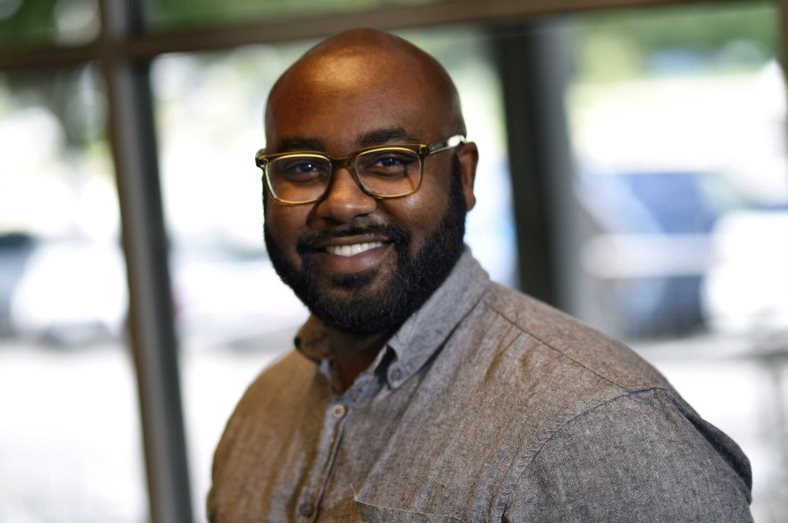VA’s Office of Research and Development (ORD) chartered an employee-led work group on diversity, equity and inclusion (DEI) in VA research, in 2020. The group’s aims are fourfold: to develop a diverse scientific workforce through training and funding opportunities; to stimulate research focused on minority health and health disparities; to promote a culture of inclusion in the workplace; and to promote equity and diversity in scientific activities. In fiscal year 2021, the DEI program received $1 million in funding.

Vascular surgeon Dr. Olamide Alabi aims to understand patient reported outcomes and concerns for Veterans with peripheral artery disease.
One important goal of the DEI work group is to fund mentored research experiences for early career investigators from minority backgrounds. To that end, ORD awarded the first group of DEI Research Supplement awards that pair junior researchers with established VA scientists who can help guide their careers.
`These men have no idea who I am’
DEI work group co-chair Dr. Mark Roltsch said diversity in scientific research is fundamental to improving outcomes for patients from minority and underserved backgrounds. As an early career cancer researcher at Howard University in Washington D.C., Roltsch relied on African American colleagues to help him connect with research participants.
“Imagine if I walked into a local barbershop and asked the Black men to come over to the cancer center to get a prostate exam,” he said. “These men have no idea who I am and have no reason to trust me.”
Roltsch said his message was much more effective coming from a researcher who looked like members of that community.
“Researchers from African American and other minority backgrounds are very passionate about promoting health in their communities,” Roltsch added. “For instance, Black men have a much higher risk of dying from prostate cancer than white men. Why is that? That’s why we want to get researchers from disadvantaged backgrounds into the research pipeline, to solve those problems.”
DEI Research Supplements
The Veterans Health Administration runs the nation’s largest integrated health care system, spanning more than 1,200 medical centers spread out across the U.S. Attached to these medical centers are over 100 VA research offices, which are also affiliated with world-class academic research institutions, like the University of Pennsylvania and Stanford University. In addition, VA maintains partnerships with many historically black universities and colleges (HBCUs), like Howard University, Spelman College, and Morehouse College. This puts VA in a unique position to mentor and fund researchers from disadvantaged backgrounds who are motivated to make a difference in their communities.
“Scientists and trainees from diverse backgrounds and life experiences bring different perspectives, creativity, and individual enterprise to address complex health-related problems. There are many benefits that flow from a diverse VA-supported workforce,” noted the DEI Research Supplement announcement.
`A high level of interest’
Dr. Carol Fowler is the lead for the DEI work group’s “Workforce Resources and Opportunities” subcommittee. The committee is charged with creating funding opportunities in mentored research for junior VA investigators from underrepresented backgrounds. These awards, called DEI Research Supplements, pair early-career investigators with established VA researchers with ORD research awards. Each DEI supplement awardee will receive up to $100,000 per year, for two years, to fund their research and to help prepare them to compete for a VA Career Development Award, later in their career.
“There was a high level of interest from the VA research offices,” Fowler said. “We received 20 applications for the first round of DEI Research Supplement awards. Most applications were ranked good-to-excellent and covered a diverse range of topics that are highly relevant to Veterans’ health care needs.”
In July of 2021, ORD funded 10 DEI Research Supplement awards. The research proposals covered topics like virtual reality technology to help Veterans with mild cognitive impairment, repurposing existing drugs to treat substance use disorder, and assessing the effects of the X chromosome on autoimmune diseases, among others.
More Information
Click here to learn more about VA research.
Topics in this story
More Stories
In a new series that highlights advancements in VA health care, VA researchers and clinicians are appearing on a Veteran-themed media platform—Wreaths Across America Radio—to tout their critical work.
Recently published findings from the VA Disrupted Care National Project [...]
Diverse representation of women in health care research allows MVP to make discoveries for women’s health






